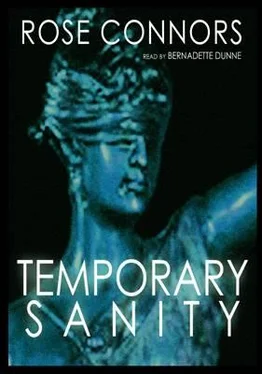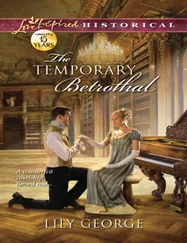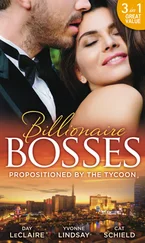I consider announcing again that Judge Long isn’t dead, but it seems futile.
Stanley doesn’t look at the Kydd. He faces the uniforms surrounding Nicky, his eyes darting from one cop to the next. “What are you waiting for? Didn’t you hear me?”
Stanley points at Nicky yet again, as if he thinks the officers don’t know who he’s talking about. “I just told you people that this man attacked a Superior Court judge. Arrest him. Now.”
Nicky gapes at the cops. The cops stare at Sergeant Briggs. The sergeant turns a questioning eye toward Geraldine. No one’s taking orders from Stanley.
“You people,” Stanley says to no one in particular, folding his thick arms across his chest.
Geraldine remains silent for a moment, staring at Nicky. She presses two fingers against her lips, no doubt wishing there were a cigarette between them. Finally, she takes a deep breath and returns Sergeant Briggs’s stare. “Take him in,” she says.
“You can’t be serious.” The Kydd faces Geraldine, his eyes wide. This is his first battle with our former boss, but he and I have both seen Geraldine at war. It’d be easier to take on the armed forces of a medium-sized country.
Geraldine stares up at him and almost smiles before she narrows her green eyes. “Your client had motive, Mr. Kydd.”
The Kydd’s eyes open even wider. Geraldine never called him “mister” when he worked for her.
“He had opportunity. And his opportunity was exclusive.” Geraldine turns to Nicky, who’s now cuffed, then looks back at the Kydd. “I’m quite serious, Mr. Kydd. Quite.”
Judge Beatrice Nolan was appointed to the Superior Court bench fifteen years ago. She brought along a fiery temper. And it’s not just lawyers and litigants who bear the brunt of her outbursts. She abuses her courtroom staff as well.
Beatrice Nolan is a narrow woman-truly. Her shoulder-length, dark gray hair is the texture of steel wool. Severe features-pinched eyes and anemic lips-punctuate her long face. Her complexion, though, is uncommonly smooth for a woman her age. Not a laugh line in sight.
The chief judge called upon Beatrice this morning to preside over the remainder of Commonwealth versus Hammond . He postponed a civil suit that was scheduled to begin in her courtroom today. I’m certain she didn’t appreciate his meddling with her schedule. There’s one thing every lawyer in the county knows about Beatrice Nolan. She doesn’t like criminal cases. They’re messy.
The chief judge gave Beatrice our trial briefs and the list of exhibits already admitted into evidence. He asked her to spend the balance of the morning reviewing them. Then he directed the court reporter to begin printing the transcript of the testimony received so far. And he told the rest of us to stay put. I didn’t, though.
Harry stayed behind to oversee the transition while I ran through the parking lot in the snow to the House of Correction. I wanted to check on Sonia Baker, find out how her meeting went with Prudence Nelson. One look at Sonia answered the question. It didn’t go well.
“What a bitch!” Sonia shouted into the telephone.
“She can help you,” I countered.
“I don’t care.” Sonia was as worked up as I’d ever seen her. “I don’t want her help. I don’t want to answer any more of her nosy questions. I don’t want to listen to any more of her arrogant lectures. I don’t want to see her again-not ever. She’s a condescending bitch.”
I stayed with Sonia for almost an hour, trying to calm her, trying to convince her to meet with the doctor again, to give it another shot. She refused. I wasn’t entirely surprised. Prudence Nelson isn’t known for her bedside manner.
I returned to the Superior Courthouse, searching my brain for an alternate expert on battered woman’s syndrome, but I came up empty. Then I began searching my brain for a way to convince Sonia to change her mind. Prudence isn’t the only Massachusetts psychiatrist well versed in battered woman’s syndrome, and I don’t particularly like her myself. But as expert witnesses go, she’s the best.
When I got back to the courthouse, Harry assured me I hadn’t missed a thing. He’d spent the time pacing the hallway, he said, phoning Cape Cod Hospital more often than he should have. The exasperated unit secretary gave him the same message each time: The judge is in surgery and won’t be out anytime soon; no word yet on his condition.
When he wasn’t busy bothering hospital personnel, Harry was lamenting the appointment of Judge Leon Long’s replacement. Judge Beatrice Nolan is bad news. She’s especially bad news for Harry.
After lunch the chief judge moved our entourage, TV cameras and all, into Judge Nolan’s cramped courtroom. It’s a former storage area, windowless and dank, at the back of the first floor. The only real courtroom in the building-the main one upstairs-is off-limits because it’s a crime scene.
Stanley, of course, rolled his TV table into our new venue at once. He positioned his star witness against the judge’s bench, facing the jury box, front and center in the dingy room. Stanley can barely wait to show his videotape again. He actually patted the box when he was done-stroked it-as if it were a pet.
Judge Nolan emerges from chambers in a huff, and her bird eyes dart around the room before settling on our table. They confirm what Harry and I already know. She’s not happy about her new assignment. And she knows we’re not, either.
Harry and Beatrice have a history.
When young Harry Madigan arrived in Barnstable County fresh out of law school, Beatrice Nolan took notice. That was twenty years ago. Beatrice was already ten years into her private practice. She offered to take the young Harry under her wing. Give him guidance. Show him the ropes.
The problem-one of them, anyway-was that Harry had been hired by the Barnstable County Public Defender’s office. From day one, he was a criminal defense lawyer. Beatrice Nolan’s practice was limited to trusts and estates. The only ropes she could show him, the civil side of the law, had nothing to do with Harry’s job.
Besides, Harry says, she scared the daylights out of him. Even then, when her hair was brown.
Turns out the ropes Beatrice wanted to show Harry had nothing to do with the practice of law, civil or criminal. She began cornering him at County Bar Association meetings. She started monopolizing him at the local watering hole, the Jailhouse. She stood too close, Harry says, touched him too often. She draped her arm across the back of his chair, set her hand on his knee on one occasion.
Twenty-six-year-old Harry Madigan was mature about it, of course. He hid.
Harry quit going to County Bar Association meetings, even though he’d barely begun. At the Jailhouse, he switched chairs as soon as Beatrice sat down. He stood if he couldn’t see both of her hands. One night, he says, he jumped up so fast he knocked the table over, and a half dozen people lost appetizers and drinks.
But Beatrice Nolan was not deterred. She left messages with his secretary, proposing coffee, lunch. She began parking her car next to his in the courthouse lot. She plastered notes on his windshield, suggesting after-work cocktails, a movie, perhaps. Her phone number, Harry says, turned up in the damnedest places.
He admits he panicked. And not only because Beatrice scared him. He was having difficulty meeting anyone else. Younger women fled, he says, when Beatrice made a beeline for him. She scared the daylights out of them, too.
Harry also admits-most of the time-that he didn’t handle it very well in the end.
He went to the Jailhouse one night after a long day in trial, looking for nothing more than a cold beer and a burger. He scanned the place for Beatrice, as he always did then, before he went in. He didn’t see her. So he settled on a stool at the bar.
Читать дальше












